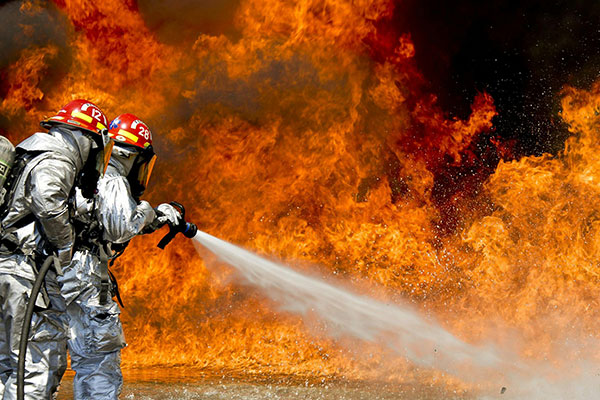Pre–Incident Planning
COURSE DURATION: 2 Days Training
COURSE DEPLOYMENT: Classroom / Virtual
PREREQUISITE: Basic Aircraft Construction
TARGET GROUP:
COURSE OBJECTIVES - UPON COMPLETION OF THIS COURSE, PARTICIPANTS WILL BE ABLE TO:
PASS MARK: 75%
AMOUNT: (PER LEARNER; PER DAY): R3896,47 (Excl. VAT)
MODULE 1 : TYPES OF AIRCRAFTS
MODULE 2 : TYPES OF ACCIDENTS/INCIDENTS
MODULE 3 : POSSIBLE ACCIDENT SITES
MODULE 4 : ACCIDENT SITE ACCESSIBILITY
MODULE 5 : EMERGENCY RESPONSE NOTIFICATION
MODULE 6 : CLIMATE CONSIDERATIONS
MODULE 7 : SUPPORT AGENCIES AND MUTUAL AID ORGANIZATIONS
MODULE 8 : AVAILABLE APPARATUS AND EQUIPMENT’S
MODULE 9 : COMMUNICATIONS
MODULE 10 : NEWS MEDIA
MODULE 11 : REPORTING AN ACCIDENT
MODULE 12 : JOINT TRAINING EXERCISES
COURSE DEPLOYMENT: Classroom / Virtual
PREREQUISITE: Basic Aircraft Construction
TARGET GROUP:
- Aviation Fire Fighters
- Watch Room Attendants
- Emergency Services
COURSE OBJECTIVES - UPON COMPLETION OF THIS COURSE, PARTICIPANTS WILL BE ABLE TO:
- Apply best practices that can convert data to useful information
- Organize valid data and use the same data in the airport emergency plan
- Establish a system for sharing pre‐incident plans with responders
- Design and develop a complete pre‐incident plan
PASS MARK: 75%
AMOUNT: (PER LEARNER; PER DAY): R3896,47 (Excl. VAT)
MODULE 1 : TYPES OF AIRCRAFTS
- General aviation
- Commercial aviation
- Military aviation
- Aircraft by engine type
- Helicopters
MODULE 2 : TYPES OF ACCIDENTS/INCIDENTS
- Declared or undeclared
- High – or – low impact
- Survivable or non-survivable
- Fire or no fire
- Rescue and/or fire control
- Hazardous materials
- Threats
MODULE 3 : POSSIBLE ACCIDENT SITES
- Airport areas
- Off airport areas
- Terrain
- Grid maps
- Exposures
MODULE 4 : ACCIDENT SITE ACCESSIBILITY
- Roads
- Bridge/Overpasses/Underpasses
- Fences
- Terrain
MODULE 5 : EMERGENCY RESPONSE NOTIFICATION
- Primary response notification
- Secondary response (Support Personnel)
- Methods of notification
MODULE 6 : CLIMATE CONSIDERATIONS
- Winds
- Rains
- Sleet and/or snow
- Effects of water
MODULE 7 : SUPPORT AGENCIES AND MUTUAL AID ORGANIZATIONS
- Police
- Medical Services
- Military
- Mutual Aid
MODULE 8 : AVAILABLE APPARATUS AND EQUIPMENT’S
- Rescue and fire fighting
- Heavy equipment
- Special-purpose equipment
MODULE 9 : COMMUNICATIONS
- Types of systems
- Radio frequencies
- Command posts
MODULE 10 : NEWS MEDIA
- Public relations/public information officer
- Access
- Periodic updates
- State agencies
MODULE 11 : REPORTING AN ACCIDENT
- Appropriate Civil Aviation Accident Investigation Authority
- Military
- State agencies
MODULE 12 : JOINT TRAINING EXERCISES
- Planning
- Simulation
- Field application
- Critique
- Revision

